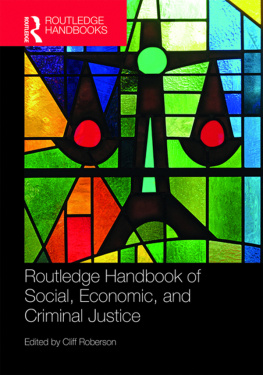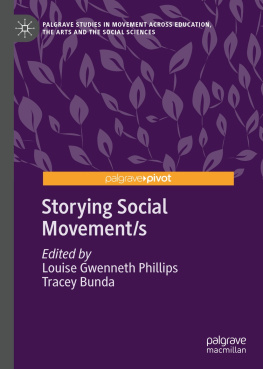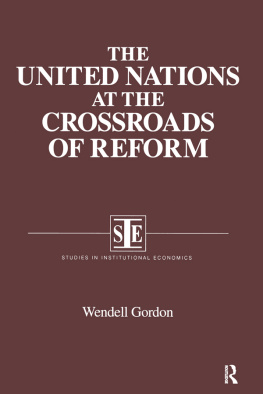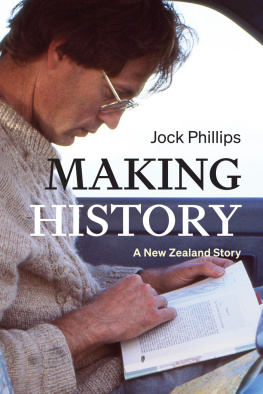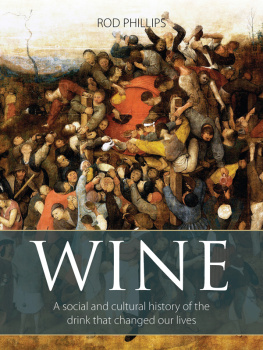WENDELL PHILLIPS, SOCIAL JUSTICE, AND THE POWER OF THE PAST
ANTISLAVERY, ABOLITION, AND THE ATLANTIC WORLD
R. J. M. Blackett and James Brewer Stewart, Series Editors
WENDELL
PHILLIPS
SOCIAL
JUSTICE
AND THE
POWER
OF THE
PAST
EDITED BY A J AISIRITHE AND DONALD YACOVONE

LOUISIANA STATE UNIVERSITY PRESS
BATON ROUGE
Published by Louisiana State University Press
Copyright 2016 by Louisiana State University Press
All rights reserved
Manufactured in the United States of America
First printing
Cover illustration. Wendell Phillips (18111884), likely by Edwin Tryon Billings, oil on canvas, 75.2 x 62.3 cm., ca. 1880. Originally owned by Oliver Wendell Holmes, Jr., and given to the Massachusetts Historical Society by his will. Collection of the Massachusetts Historical Society.
Frontispiece: Wendell Phillips by Mathew Brady, 18531860. Courtesy of the Library of Congress.
DESIGNER: Michelle A. Neustrom
TYPEFACE: Whitman
PRINTER AND BINDER: Maple Press (Digital)
LIBRARY OF CONGRESS CATALOGING-IN-PUBLICATION DATA
Names: Aiseirithe, A J, editor. | Yacovone, Donald, editor.
Title: Wendell Phillips, social justice, and the power of the past / edited by A J Aiseirithe and Donald Yacovone.
Description: Baton Rouge : Louisiana State University Press, 2016. | Series: Antislavery, abolition, and the Atlantic world | Includes bibliographical references and index.
Identifiers: LCCN 2016012818| ISBN 978-0-8071-6403-7 (cloth : alk. paper) | ISBN 978-0-8071-6404-4 (pdf) | ISBN 978-0-8071-6405-1 (epub) | ISBN 978-0-8071-6406-8 (mobi)
Subjects: LCSH: Phillips, Wendell, 18111884. | AbolitionistsMassachusettsBiography. | Antislavery movementsUnited States.
Classification: LCC E449.P56 W46 2016 | DDC 326/.8092dc23
LC record available at http://lccn.loc.gov/2016012818
The paper in this book meets the guidelines for permanence and durability of the Committee on Production Guidelines for Book Longevity of the Council on Library Resources.

FOR
Joe and Peggy
AND
Mary E. Yacovone
CONTENTS
Introduction: Tribune of the People
DONALD YACOVONE
1. Wendell Phillips Is the Subtlest, Stubbornest Fact of the Times: Abolitions Golden Trumpet and the Fall of the Slaveholders Republic
JAMES BREWER STEWART
2. The Transatlantic Mind of Wendell Phillips and the Problem of Democracy in America
W. CALEB McDANIEL
3. A Puritan Radical: Wendell Phillipss New England Religion
DAN McKANAN
4. Wendell Phillips, the Rule of Law, and Antislavery Violence
DEAN GRODZINS
5. Comfortable in His Own Skin: Wendell Phillips and Racial Egalitarianism
JAMES BREWER STEWART
6. Wendell Phillips, the Constitution, and Constitutional Politics before the Civil War
MICHAEL LES BENEDICT
7. Wendell Phillips and Transatlantic Radicalism: Democracy, Capitalism, and the American Labor Movement
PETER WIRZBICKI
8. The People Coming to Power!: Wendell Phillips, Benjamin F. Butler, and the Politics of Labor Reform
MILLINGTON W. BERGESON-LOCKWOOD
9. The Rights of Others: Wendell Phillips and Womens Rights
HLNE QUANQUIN
10. Wendell Phillips and the American Indian
ANGELA F. MURPHY
11. Race, Radicalism, and Remembering Wendell Phillips
DONALD YACOVONE
12. The Phillips Community of Minneapolis: Historical Memory and the Quest for Social Justice
DAVID MOORE, HARVEY M. WINJE, AND SUSAN ANN GUST IN CONSULTATION WITH JAMES BREWER STEWART
ACKNOWLEDGMENTS
Perry Miller once described the work of a historian as akin to that of a lone wolf who grinds away in a solitary study excavating the past. He imagined that the great ones, if they caught sight of one another on campus, acted like battleships of separate sovereigns with nothing in common exchanging distant salutes in mid-ocean. We cannot imagine inhabiting that world. As historians we spend enormous time alone with our thoughts and the evidence of things past, but artful scholarship would remain elusive without the assistance and guidance of our colleagues and so many librarians, archivists, and other professionals. In this kind of an enterprise we owe the greatest debt to our fellow contributors who showed remarkable patience and resilience in what must have seemed like an interminable process. We could not be more grateful. Their excavations of the life of Wendell Phillips are as inspiring as they are insightful. We also owe an enormous debt to series editors Richard Blackett and James Brewer Stewart, especially to Jim. His experience, wisdom, dedication, and unequaled knowledge of Wendell Phillips and the antislavery movement shaped every aspect of our work. There is good reason why Jims colleagues refer to him as the dean of antislavery studies and without him our book would have been impossible.
Coeditor A J Aisirithe first conceived and led the effort to reinvigorate Wendell Phillipss place in history and memory. In 2011, she organized the three-day Wendell Phillips Bicentennial Commemoration, which took place at the Harvard Law School and brought together an international group of scholars and speakers to explore Phillipss indispensable role in the abolition of slavery, the promotion of womens and immigrant rights, his foray into electoral politics during the Civil War, his much forgotten work on behalf of workersmale and female, white and blackhis campaign against unrestrained and unregulated capitalism, and the influence he exerted long after his death. For their help in making the Phillips Commemoration happen, we are both deeply indebted to James Brewer Stewart, emeritus of Macalester College, Harvard Universitys John Stauffer, Dan McKanan at the Harvard Divinity School, and particularly David Harris, Managing Director of the Harvard Law Schools Charles Hamilton Houston Institute for Race and Justice. He is a leader and a terrific colleague. We also could not have staged that event without the indispensable contributions of Rev. Dr. Terasa Cooley, Rev. Dorothy Emerson, Dean Grodzins, Paul Marcus of Community Change, Horace Seldon of the National Park Service in Boston, Peter Accardo of the Houghton Library, Robin De Blosi at Old South Meeting House, Deborah Cunningham at Primary Source, Pleun Bouricius at Mass Humanities, and the generous support of Harvard Universitys Faculty of Arts and Sciences, Harvard Divinity School, the Houghton Library, and Mass Humanities. Without them all no conference would have happened and no book could have been imagined.
Many of our academic colleagues also provided indispensable knowledge, advice, and support for this book, and we are so very appreciative, especially to Mary Ann Calo; Carol Faulkner; Roy Finkenbine; Paul Finkelman; Henry Louis Gates, Jr.; Lori Ginzberg; Allen Guelzo; David Harris; Stephen Kantrowitz; Roger Nichols; Marilyn Richardson; John Stauffer; and Elizabeth Varon. We also owe a debt of thanks to Oona Beauchard, Hobson Woodward, and Mary E. Yacovone of the Massachusetts Historical Society; Khadijah J. Brown, Director, Facilities Management, and Barbara Connolly, Special Assistant to the Superintendent, Boston Public Schools; Sheldon Cheek, Pablo Gonzales, and Tom Wolejko of Harvards Hutchins Center; Joice Himawan, director of Abingtons Dyer Memorial Library; Bruce Kirby, Manuscript Division, Library of Congress; Ryan McNabb of the Boston African American National Historic Site; AnnaLee Pauls, Rare Books and Special Collections, Princeton University Library; and Kim Tenney, Fine Arts Reference Librarian, Boston Public Library. In Minneapolis, Susan Weir and Jonathan Miller provided crucial assistance.





